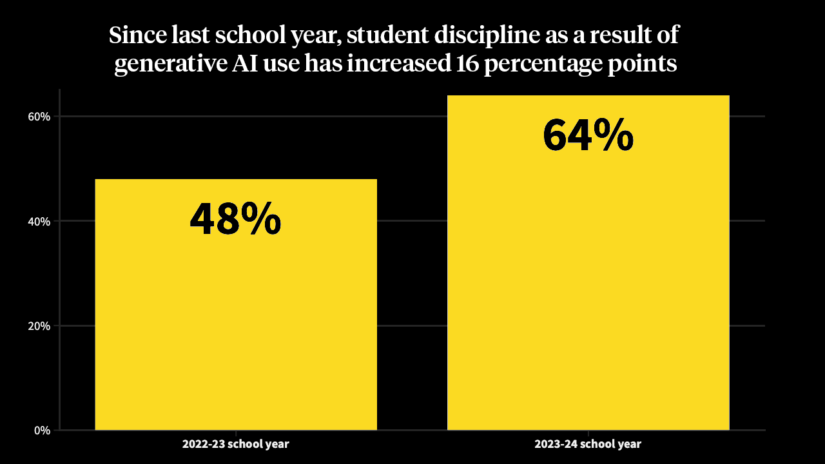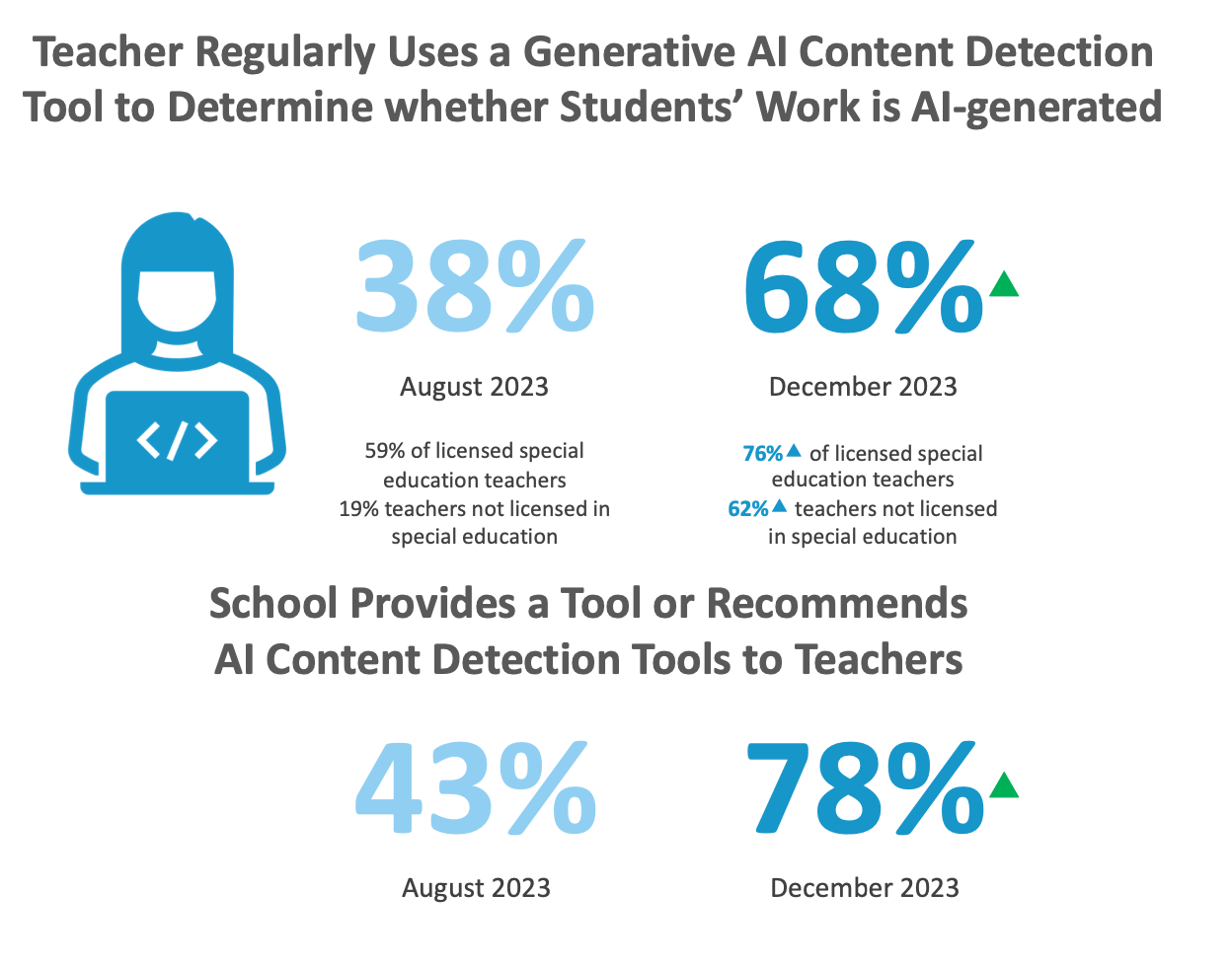During this summer, a team of students from MIT embarked on a journey to the sou …
New data shows teachers cracking down on distrust, detection, and discipline
Carlos Changemaker

A recent survey has provided concrete data on the significant increase in the presence of ChatGPT and other AI chatbots in American classrooms, while also highlighting a notable surge in student disciplinary issues resulting from this trend.
Amid the growing prevalence of artificial intelligence tools in educational settings, a majority of teachers report that their school districts have introduced guidance and training programs for both teachers and students, as revealed in a recent nationwide survey conducted by the nonprofit Center for Democracy and Technology (source). Despite this development, the survey points out a lack of clear directives for teachers in handling potential instances of student cheating using generative AI.
The report’s authors, Maddy Dwyer and Elizabeth Laird, underscore the ongoing challenges faced by schools in effectively integrating generative AI into the classroom, emphasizing the critical need for school officials to establish necessary boundaries to prevent irresponsible usage by both educators and students.
Survey results from middle and high school teachers conducted in November and December demonstrate a significant shift in attitudes towards generative AI, with 60% reporting permission for its use in school assignments, marking a doubling from previous surveys. While 80% of educators acknowledge receiving formal training on these tools, only 28% have received specific instructions on addressing potential cheating with tools like ChatGPT.
Despite the increase in permissions granted, disciplinary incidents related to the misuse of generative AI have risen, with 64% of respondents citing cases where students faced consequences, such as assignment credit reduction, for employing AI tools – a notable escalation compared to previous surveys.
Furthermore, the widespread use of AI tools has led to a rise in teachers’ skepticism towards the originality of students’ work, with over half expressing doubts about the authenticity of assignments.

Addressing the issue, a growing number of teachers are resorting to digital detection tools to identify students who may have plagiarized using generative AI, with 68% leveraging such content detection mechanisms, rising to 76% among licensed special education teachers.
Researchers have raised concerns over the equity implications for students with disabilities, particularly in light of research indicating the inefficacy of detection tools (source).


